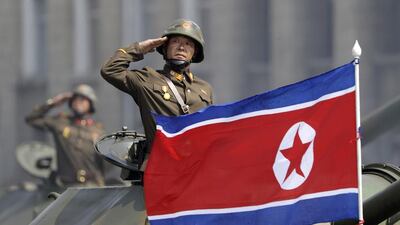Bold is in. Once upon a time, leaders were valued for carefully reasoned decisions, cool heads and restraint. Not these days. Today, impulsive and brazen and even a little crazy is the new black. From shirtless Vladimir Putin invading his neighbours to Rodrigo Duterte of the Philippines gunning down drug dealers, from Recep Tayyip Erdogan rounding up tens of thousands of so-called enemies to Donald Trump ... well, to Mr Trump being himself every day of the week, we live in a time when grand gestures and dramatic shifts appear to be the fashion.
For this reason, not wanting to be out of step with the times, I would like to make a few bold predictions myself. I am not under the illusion this will result in my being considered in the same league with any of the leaders mentioned above (I certainly hope and pray it does not), but I thought “if that’s what the public wants” then let me try to give to you. Perhaps you had better sit down.
First, let me start with the big news of the past week, the sudden, unexpected announcement of a possible summit between the president of the United States and North Korea's dictator Kim Jong-un. While most in the media have focused on what a reversal this is and how the meeting might defuse the tensions that have brought the Korean peninsula to the brink of war in recent months, I have a "bold" take: it's all a non-event.
First, the president of the United States agreed to the meeting impulsively, without really consulting his team (many of whom are known to have been shocked by the decision). He did this largely to distract from his growing legal troubles, made worse this week with a new set of revelations about how his personal lawyer paid off an adult film star immediately before the 2016 election to keep her quiet about her affair with the president. In other words, this summit is not the result of careful planning and on complex matters careful planning is usual required to produce a meaningful outcome.
The decision therefore was more like a brain spasm of the US commander-in-chief than it was like the result of any even modestly well-thought out policy initiative. Evidence of this came when the day after the decision was made, the White House appeared to walk it back ... and then said, no, the meeting would happen, they just weren’t sure when, where or under what terms. In other words, within 24 hours it was already clear there was less to this earth-shaking development than met the eye.
Further, to actually make such a summit work, which means to have it achieve what no recent past president of the US could: the end of North Korean nuclear development and, in the words of the Trump team, the "denuclearisation" of North Korea, would require a number of elements that seem unlikely to present themselves. These would include the development of a coherent policy process in a US administration that is highly dysfunctional and lacks people in key positions, the development of both a smart negotiating strategy and the patience to carry it off, the cooperation of multiple nations (including those that are highly sceptical at the moment, like Japan), and, perhaps most importantly the agreement by the North Koreans to give up nuclear weapons they have invested in decades of development, have brought them greater influence than they have ever known and that they see as key to their security.
This last point has made many Korea-watchers sceptical that the north will actually follow through on the one thing that is considered by the US to be essential to any deal. You might ask why they would have offered the summit in the first place, then. First, of all, Mr Kim appeared bold, which as we have established is what all the cool leaders seem to be doing these days. Secondly, for him, it was an easy win. He appeared flexible and when Mr Trump said yes, he got a big boost to his prestige without giving up anything meaningful. Later, should the negotiations break down, he will have gained stature and appeared “reasonable.”
What is most likely is that if the meeting takes place (and my guess is it will because Mr Trump will increasingly need the distraction and because he believes the power of his personality makes him superior to all his predecessors at negotiations) that it will produce a lot of hoopla, some photo-ops, some agreements around platitudes, the trappings of victory and then a long, follow-on, implementation negotiation. These will have phased steps towards the bigger goals. And somewhere amid that implementation process — after some modest gains, and the lifting of some sanctions, the north will, as they always have, cheat, slow down or pull back. They will not denuclearise and we will be back to square one.
In this respect, this shocking development is much like Mr Trump's steel and aluminium tariffs. A stunning development that is likely to amount to considerably less than it first seemed (in that case, the US has already started excluding countries like Canada, Mexico and Australia from the once sweeping policy).
In other words, as is often true in fashion, the natural evolution of “bold” has now led to faux-bold, steps that play well in the media, seems striking, but upon further scrutiny aren’t what they appeared. And like cheap fashions, in the end, they all actually fall apart before your very eyes.

